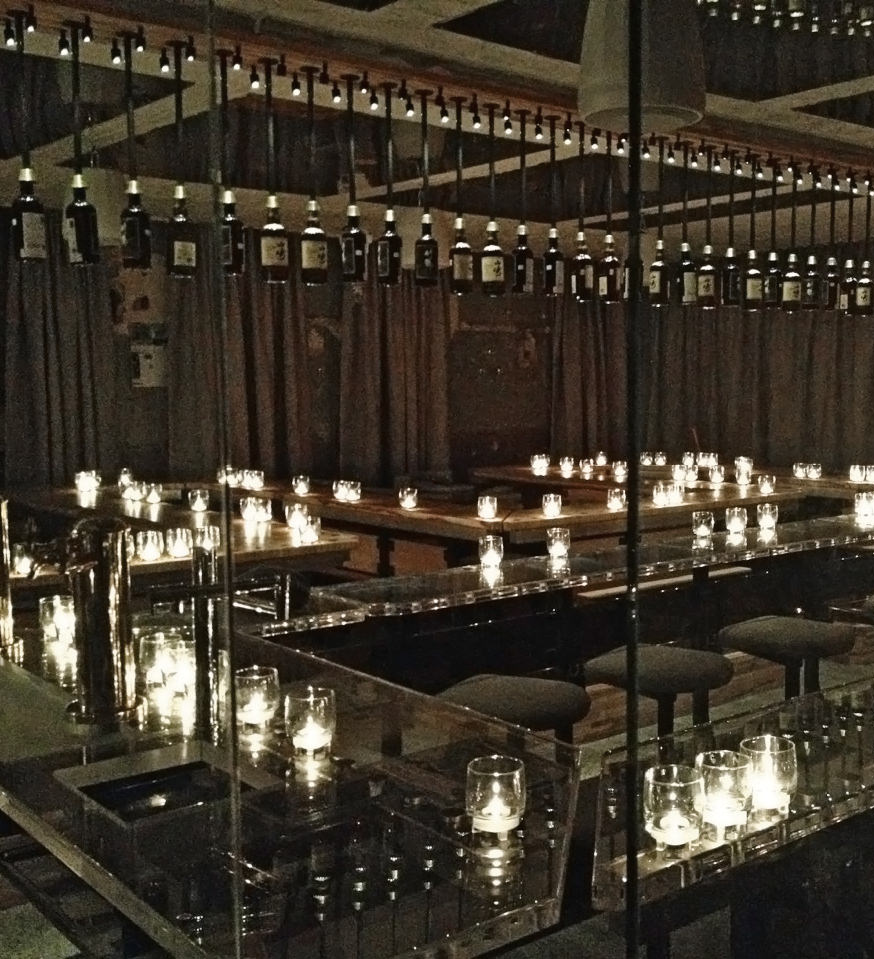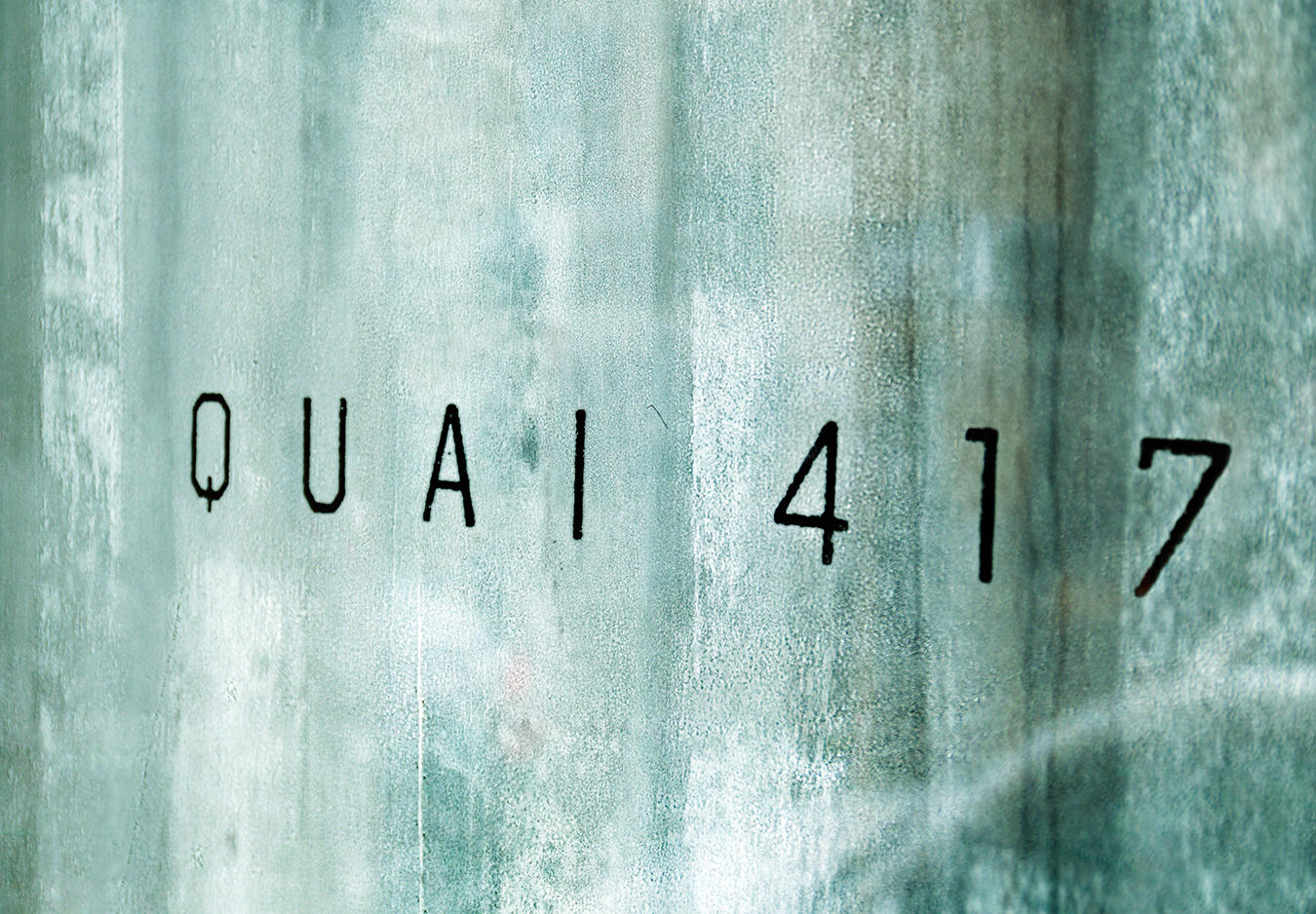Montreal Painter Corri-Lynn Tetz’s Dreamy Female Gaze
Soft focus.

“Canadians can be quite conservative,” says Corri-Lynn Tetz, seated on the floor of her lofty artist studio in Montreal’s Mile End. “And even if they’re not, when big clients like banks and corporations are conservative, that influences what people bring to art fairs.”
Despite that, Tetz is swiftly gaining fame for her sensual takes on the human form: glowing, soaring paintings that are distinctly ethereal, decidedly feminine, and frequently nude.
And as her reputation grows, so does her origin story. Tetz recounts how her brother found a collection of vintage “men’s magazines” behind a charitable donation bin in Calgary and passed them along to her to use as references—at her request. “I have a big collection now,” she says with a laugh, “though only up to the ’80s. After that it gets a little much.”
She’d long felt drawn to painting the female form, but it was something like a secret shame, a subject art school seemed to dismiss or even discourage. “It just wasn’t seen as worthy of interrogation,” Tetz says. Even feminist art at the time seemed to demand irony or confrontation rather than gentle ambiguity. There was also Tetz’s own conservative Christian upbringing, which emphasized purity and sin (and how both could be evoked by girls’ and women’s bodies).
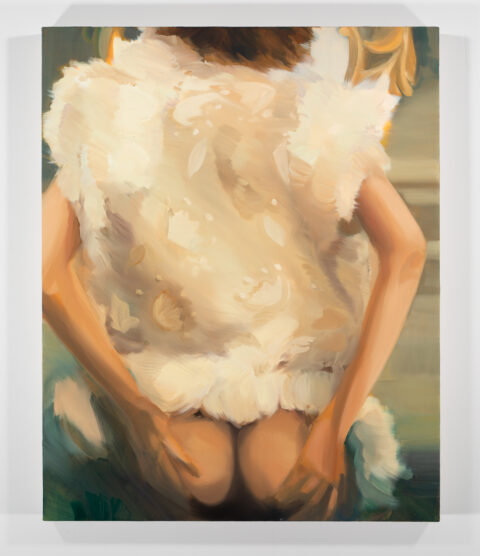
Then, as she was starting a residency at the Banff Centre, an artist friend convinced her to just go with her gut. “She said, ‘Forget everyone else—just draw what you want.’ And when I tried, it all opened up.” With the assumed male gaze removed, and fading photography replaced with expansive brushstrokes, one-dimensional models transformed into empathetic, complex, vulnerable figures beyond binaries and brown paper wrapping—and art collectors noticed.
Her first big solo show opened in her hometown in November 2020: Art Lover at Contemporary Calgary. Since then, her exhibitions have included Heaven Goes On Forever and Ever at New York’s Arsenal Contemporary Art and Quiet Time at L.A.’s Anat Ebgi (that title, she notes, is traditionally a period set aside for spiritual contemplation). There have also been a generous collection of group shows, like Looking Like Fire at Sim Smith in London last fall.
Tetz says this past year has been unprecedented. After working at Concordia University, where she got her MFA in 2015, this is the first time she’s made painting her sole, full-time job. It’s a shift that started with the early pandemic, when teaching online let her stand back, take long walks, and paint in her studio every day.
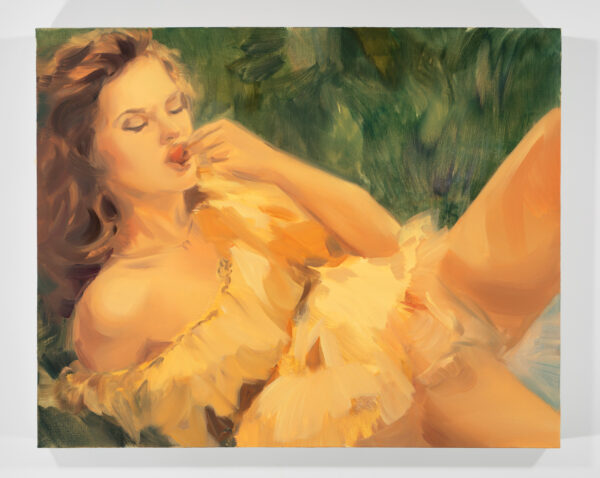
This is also the first time she’s really connected online, albeit out of necessity—with buyers, gallerists, fellow artists, fans. Although she often works with towering linen canvases, somehow Tetz’s paintings translate well to social media. It’s something about the light they seem to emit from within, or the online embrace of hyper-femme aesthetics. (Although it’s notable that, if one Googles Tetz’s work with Safe Search on, several results will be blurred.)
When asked how she feels about this digital realm, Tetz is grateful for the connections she’s made but a bit less enthusiastic about technology in general. As for AI, she laughs, then cites Francis Bacon: The Logic of Sensation by Gilles Deleuze and how paint can bypass intellect and work directly on the nervous system.
“I was in a group show recently, and there were some other works that were so meticulous, so clean, so perfectly planned,” she recalls. “But it made me even more sure of my approach. I love the places where things fall apart. I want mistakes. I want ugliness. I’m not interested in perfection.”
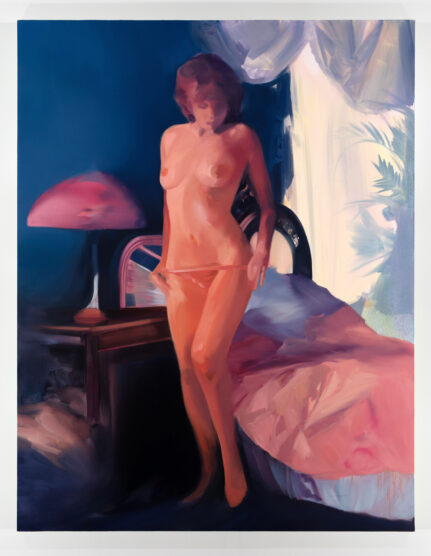
Corri-Lynn Tetz’s next show opens in January 2024 at 12.26 gallery in Dallas, Texas.


